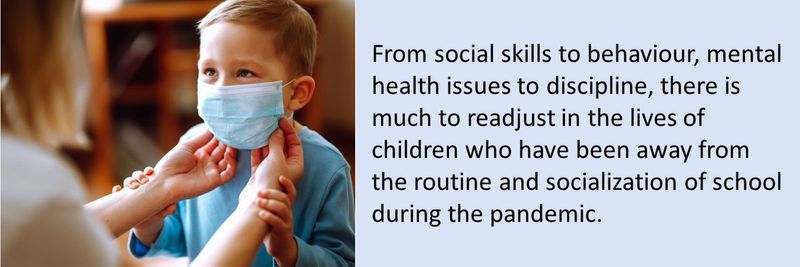1 of 11

2 of 11
3 of 11
4 of 11
5 of 11
6 of 11
7 of 11
8 of 11
9 of 11
10 of 11
11 of 11
Ways to bolster children's mental health for returning to in-person school during COVID-19
